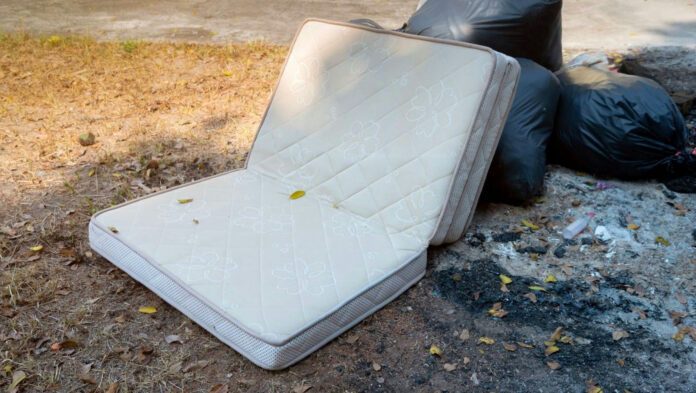The Regional District of Kootenay Boundary is concerned a program to recycle old mattresses won’t start this year as expected.
In a memo to the board, environmental services manager Janine Dougall said in BC producers are held accountable for the full lifecycle of their products. Through non-profit agencies like Recycle BC, they operate curbside and drop-off recycling services.
Since 2012, local governments have been calling for mattresses to be added to such programs. A provincial government plan developed a few years ago suggested mattresses would be included starting in 2025 and several industry groups supported the move. However, in July, the RDKB learned mattresses have been excluded from further regulation.
Dougall said the rationale was that “the present economic conditions do not allow for new fees on mattresses,” as the fees estimated at $40 to $45 per unit were a “perceived hardship” on consumers.
“RDKB staff are deeply concerned about this logic,” Dougall wrote, citing a 2016 Metro Vancouver study that suggested recycling mattresses would create new jobs, save on energy and landfill costs, and reduce greenhouse gas emissions.
Currently the RDKB accepts mattresses in its landfills, but they pose “significant, unique and costly challenges for local governments in disposal or recycling,” Dougall said. “They are extremely expensive to landfill, taking up large amounts of airspace and tend to bounce out of the garbage making compaction difficult.
“Traditional spring mattresses can pop out of garbage and become entangled in drive shafts of large equipment. Mattresses are bulky and heavy making them hard to move and pack onsite. Mattresses also must be handled with care as there is potential for them to contain bed bugs and bodily fluids.”
Requiring mattress manufacturers to take care of disposal would shift the “financial and logistical burden” of disposal from local governments to producers, she said, which would reduce illegal dumping and extend the life of local landfills.
Manufacturers would be expected to increase the cost of their products to cover collection and recycling, so only someone buying a new mattress would pay for recycling it.
The board agreed unanimously to write a letter to the environment minister, asking her to reconsider the decision to exclude mattresses.
Be the first to know! Don’t miss out on breaking news and daily updates in your area. Sign up to MyKootenayNow News Alerts.






